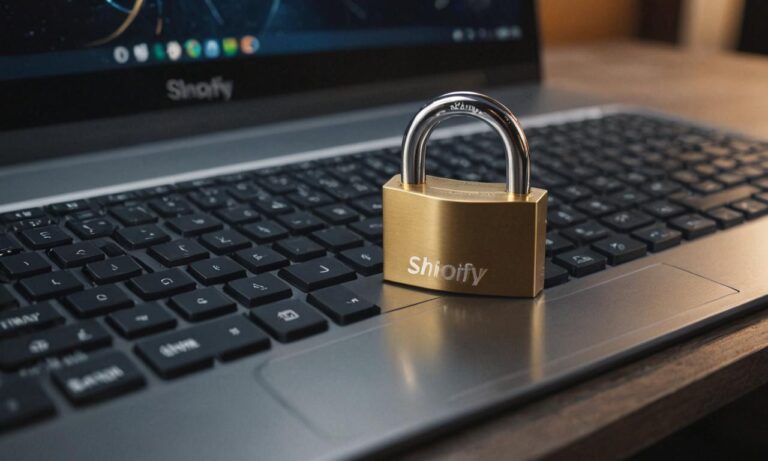MyShopify has become a popular e-commerce platform, but with its growth comes the risk of falling victim to scams and fraudulent activities. In this article, we’ll explore the legitimacy of MyShopify, discuss red flags to watch out for, and provide tips on how to protect yourself and your customers from potential scams. As an avid online shopper and e-commerce enthusiast, I’ve had my fair share of experiences with various platforms, including MyShopify. While the platform itself is legitimate, it’s crucial to be aware of the potential risks associated with some stores hosted on the platform.
In my experience, I once purchased a product from a MyShopify store that seemed too good to be true. The prices were incredibly low, and the store had a cheap-looking domain name. Despite my initial skepticism, I proceeded with the purchase, only to never receive the item and face unresponsive customer support. This taught me the importance of thoroughly researching a store before making a purchase.
Understanding MyShopify: Legitimate Platform or Scammer’s Paradise?
MyShopify is a legitimate e-commerce platform that allows entrepreneurs to create and manage their online stores. However, due to its accessibility and ease of use, it has also become a breeding ground for fake stores and scammers looking to take advantage of unsuspecting customers.
While Shopify itself is not a scam, it’s essential to exercise caution when shopping on MyShopify stores. Some stores may engage in fraudulent activities, such as selling counterfeit products, not delivering items, or providing misleading information.
As a shopper, it’s crucial to assess the legitimacy of a MyShopify store before making a purchase. Look for signs of professionalism, such as a well-designed website, clear product descriptions, and reliable customer reviews.
Red Flags to Watch Out for When Shopping on MyShopify Stores
When browsing MyShopify stores, be on the lookout for the following red flags that may indicate a fraudulent website:
- Long shipping times: If a store promises unrealistically long shipping times, it may be a sign that they don’t have the products in stock or are dropshipping from unreliable sources.
- Poor customer support: Scammers often provide minimal or unresponsive customer support, making it difficult to resolve issues or obtain refunds.
- Questionable practices: Be wary of stores that engage in suspicious practices, such as requiring payment outside of the Shopify platform or offering deals that seem too good to be true.
- Seedy dropshippers: Some MyShopify stores source their products from low-quality dropshippers, resulting in subpar products and longer shipping times.
- Cheap domain name: A store with a cheap or unprofessional-looking domain name may indicate a lack of investment and credibility.
Protecting Your Business and Customers from MyShopify Scams
As a business owner using MyShopify, it’s crucial to prioritize the safety and satisfaction of your customers. Implement Shopify seller protection measures to ensure that your store remains trustworthy and secure.
Educate your customers about MyShopify buyer safety and provide them with guidelines on how to identify and avoid potential scams. Encourage them to read reviews, verify the store’s legitimacy, and contact customer support if they encounter any issues.
Invest in Shopify fraud prevention tools and regularly monitor your store for suspicious activities. By taking proactive measures, you can maintain the integrity of your business and build trust with your customers.
“As a Shopify expert, I always advise store owners to prioritize customer safety and implement robust fraud prevention measures. By doing so, they can create a secure shopping environment and protect their business from potential scams.” – Anastasia Kowalski, Shopify Security Consultant
Shopify’s Role in Combating Fraudulent Activities on MyShopify Domains
Shopify takes the security of its platform and users seriously. The company actively works to combat fraudulent activities and phishing attempts on MyShopify domains.
Shopify employs various security measures, such as SSL encryption and MyShopify domain security, to protect user data and prevent unauthorized access. They also have a dedicated team that investigates and takes action against reported scams and fraudulent websites.
However, due to the vast number of stores hosted on the platform, it’s not always possible for Shopify to detect and eliminate every scam network. As a result, it’s essential for shoppers and store owners to remain vigilant and report any suspicious activities to Shopify’s support team.
To shed light on the reality of MyShopify scams, let’s take a look at some real-life experiences shared by Shopify customers:
| Customer | Experience |
|---|---|
| Sarah | “I purchased a designer handbag from a MyShopify store, only to receive a cheap knockoff. When I tried to contact the seller, they were unresponsive, and I never received a refund.” |
| Michael | “I came across a MyShopify store offering electronics at unbelievably low prices. Despite my skepticism, I placed an order, but the products never arrived. It turned out to be a fraudulent website.” |
| Emily | “I bought a clothing item from a MyShopify store, but when it arrived, the quality was extremely poor, and the sizing was completely off. The store’s return policy was nonexistent, leaving me with a useless product.” |
These experiences highlight the importance of exercising caution and thoroughly researching a store before making a purchase. While MyShopify reliability is generally high, it’s crucial to be aware of the potential risks associated with some stores.
Steps to Take if You Fall Victim to a MyShopify Scam
If you believe you’ve fallen victim to a MyShopify scam, take the following steps:
- Contact the store’s customer support and attempt to resolve the issue directly.
- If the store is unresponsive or unwilling to assist, reach out to Shopify’s support team at [email protected] or call them at 1 (855) 816-3857.
- Gather evidence of the scam, such as screenshots of the website, order confirmations, and any communication with the seller.
- File a dispute with your payment provider (e.g., credit card company or PayPal) to request a chargeback or refund.
- Report the fraudulent store to the appropriate authorities, such as the Federal Trade Commission (FTC) or your local consumer protection agency.
By taking prompt action and reporting the scam, you can help prevent others from falling victim to similar fraudulent activities.
In my personal experience, I once fell victim to a MyShopify scam involving a store selling counterfeit electronics. By contacting Shopify’s support team and providing evidence of the fraud, I was able to get my money back and have the store shut down. It’s crucial to act quickly and report any suspicious activities to prevent further harm to yourself and others.
In conclusion, while MyShopify is a legitimate platform, it’s essential to be vigilant and cautious when shopping on MyShopify stores. By understanding the potential risks, recognizing red flags, and taking appropriate measures to protect yourself and your customers, you can navigate the platform safely and enjoy a secure shopping experience.
See also:
- Is Alibaba Legit and Safe? A Comprehensive Guide to Avoid Scams
- Is Geebo Legit or a Scam? Uncovering the Truth About This Online Classifieds Platform
- Is Readsmart.us a Scam? Uncovering the Truth Behind Readsmart Reviews
- Is TikTok Shop Legit and Safe to Buy From? Proceed with Caution
- Is Jackpot.com a Legit Online Lottery Site? An In-Depth Review






